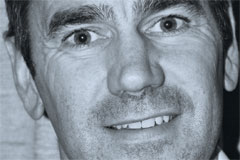The necessity of asking for help

It’s one of the first things I remember being taught as a junior house officer all those years ago, yet it seems to be one of the most difficult skills to learn – when to ask for help.
We should never stop asking for help
We’ve all been there, ploughing on regardless, not wanting to bother our peers or more senior colleagues knowing they are equally busy and stressed, as we start to get in a bit of a pickle with a procedure, or simply need help and guidance on what to do next. I am fortunate to work with great colleagues, in a large practice, and I think I have overcome my apprehensions at being thought of as a fool because I don’t even know how to manage a patient with acute hair loss precipitated by Brexit.
It hasn’t always been this way and my career is dotted with little incidents of support, guidance and advice I have received. I once worked as an ENT SHO which was one of my most enjoyable jobs – the on call was quiet with consultant back up from home. On starting in the role, my cheerful Geordie registrar gave me a piece of advice that I will always remember: ‘If ya gonna call the boss in at night, make frickin sure there is a real problem.’
This did nothing to inspire reassurance. One night I had to call my consultant in to retrieve a fishbone from the spouse of another senior colleague at 3am after he had enjoyed a black tie dinner, but choked on the pan fried plaice. I peered over my boss’s shoulder anxiously as he searched for the bone that I had seen (but couldn’t retrieve) only 30 minutes before. No bone was seen.
‘I’m sure it was there,’ I muttered whilst sweating profusely and offering everyone a hot toddy so we could all relax a little. Fortunately for me, the bone reappeared, was eventually safely removed, and everyone went home happy, although I lost a few kilos in the process.
I also found myself stuck when working in A+E in Australia and presented with a fit young man with a bite on his buttock and profuse sweating below the knees. He looked as though he had just stepped out of a pond, such was the perspiration. A short phone call later to the toxicology lab in Melbourne and all was solved: ‘No worries mate, looks like the bugger’s been bitten by a red back’. Sure enough, after administering the appropriate antivenom he was skipping out like a little Joey in no time.
These incidents remind me that wherever we are in our careers, be it first day on the wards or last day before retirement (I wish), we can always learn, and should never stop asking for help.
Richard Cook is a GP partner in Hurstpierpoint, West Sussex. You can follow him on Twitter @drmoderate
Pulse October survey
Take our July 2025 survey to potentially win £1.000 worth of tokens











